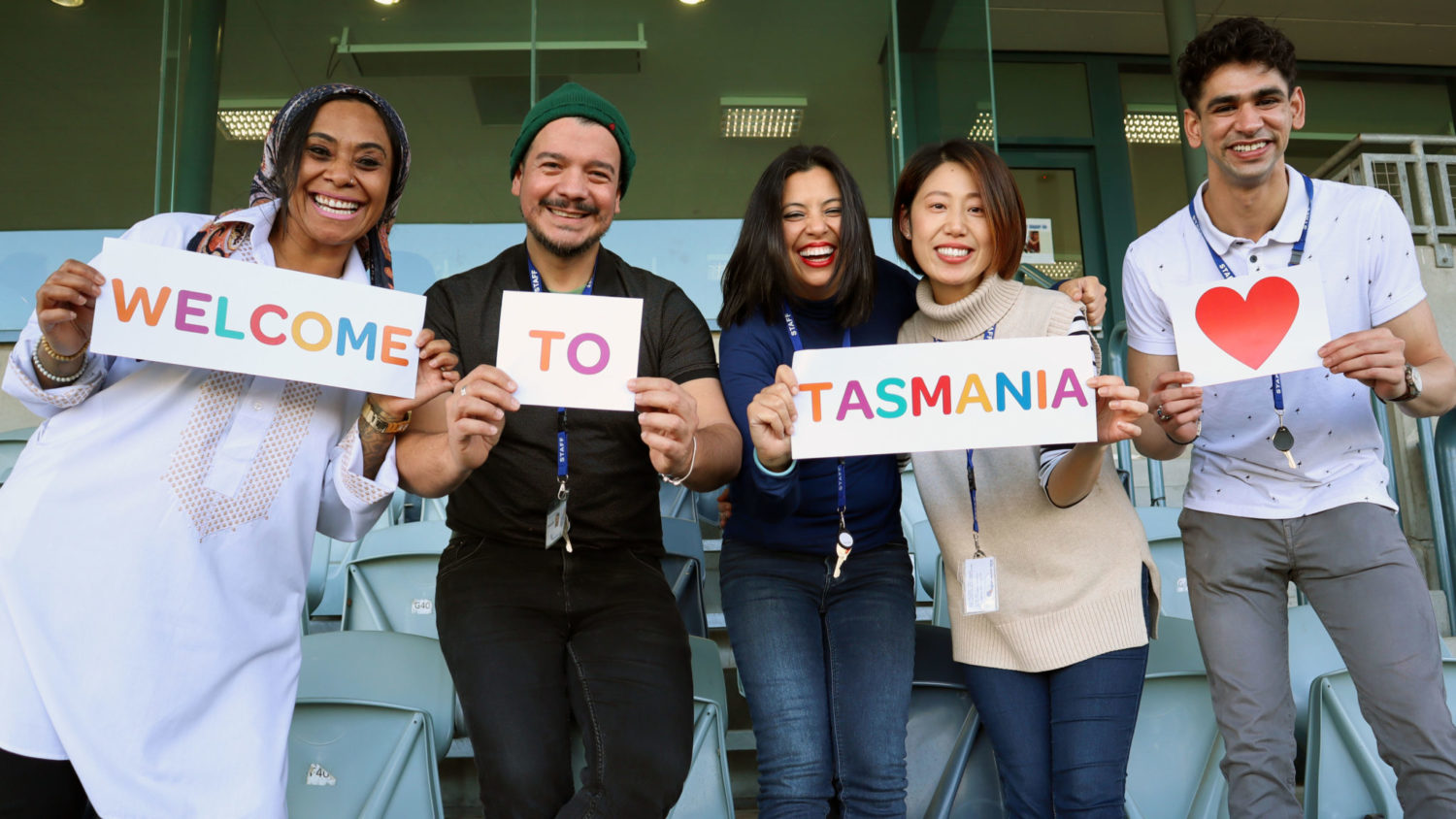From Sunday 19 to Saturday 25 June, we celebrate Refugee Week.
Refugee Week is an opportunity to raise awareness of the refugee experience, promote harmony and come together to celebrate the contributions people from refugee backgrounds make to Tasmania society. Some members of our community have lived experience of being refugees, and there are countless examples of refugees who have made profound and positive contributions to Tasmania.
This year, the theme of Refugee Week is Healing. It’s about considering how wounds can be healed together, through sharing stories, through a sense of community and through realising how deeply we are interconnected to others- both in our own communities and around the globe.
Jamyang McQuillen is the Humanitarian Settlement Program State Coordinator at MRC Tas. Jamyang is originally from Tibet, but was raised in a refugee camp in the south of India before moving to the United States as a humanitarian entrant. Jamyang is no stranger to outdoor adventures, and walking the Overland Track and Three Capes, as well as spending time bushwalking with her family, keeps her happy. Part of her love of the outdoors is the sense of belonging it gives, and the way it helps her feel at home in a new place. “When you are in nature, it doesn’t seem to matter what my citizenship status is, the colour of my skin, what language I speak or do not speak, what I have or don’t have,” she explains.
Dahir Ali is another incredible MRC Tas employee, supporting clients through his role as a bicultural worker. Though he is thousands of kilometres away from his home country, Ethiopia, Dahir has been able to maintain his cultural connection by listening to traditional music with his children, and through remembering his country. He encourages other refugees in Tasmanian to access the support that’s available via MRC Tas. “I can advise people to connect to MRC,” he says.
Menuka, Gangi and Arezo are clients at MRC Tas and they share their inspiring stories. For Gangi, Australia has been home for four years now and she has managed to create her own garden in Tasmania, where she grows herbs and flowers that help make her feel at home. Though moving to a new country had her worried initially, she soon found other Bhutanese families and spending time with them has helped her find a sense of belonging in Tasmania.
Menuka has been living in Australia for nine years and, like Gangi, it took some time before she felt truly at home. “When I first arrived in Hobart, I felt very lonely. It was a new place for us and we didn’t know anyone to speak to.” Now, though, Menuka feels settled in Hobart.
Arezo arrived in Australia in 2015 with a mix of emotions. “I was really scared because I didn’t know how to speak English and I was very sad because my brother’s family didn’t come with us, but I was also really excited.”
They share some powerful advice for other refugees arriving in Tasmania, and can empathise with what new arrivals may be experiencing. “I really feel your pain and suffering,” Menuka says. She reminds other refugees arriving in Tasmania that participation in community activities and making new friends does help. “We all want to live in peace and harmony.”
Taking time to centre the refugee experience helps to broaden our understanding of the distinct issues faced by refugees, as well as how we can support their journey. It’s also a chance to reflect on the strength and courage of refugees in our community.



